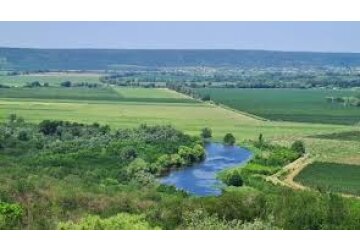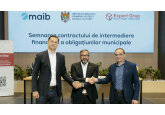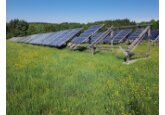
Foreign journalists study eco-tourism in the Lower Dniester zone
The Ramsar wetland of the "Lower Dniester" zone attracted the attention of a group of European journalists who came on an information tour to the Stefan-Voda district. The visit was organized by the Moldovan society Biotica, which has implemented a number of investment eco-projects in this region.
Biotica has been working in the “Lower Dniester” area since the late 1990s, having achieved the official international status of Ramsar Site 1316 (3MD003) in 2003. Ramsar sites are ecologically valuable wetland areas of international importance. In our case, it occupies 62 thousand hectares, located in the south-eastern part of Moldova, on the territory of the districts of Causeni, Stefan Voda, and Slobozia in the Transnistrian region.
The district of Stefan Voda is considered particularly attractive for investment. The area is really rich: the Ramsar zone includes 15 natural complexes, the most valuable of which are the Talmaz Plains, the landscape reserve “Turkish Garden” and Trajan’s Wall, built in the 3rd century A.D. However, the same “Turkish Garden”, between the villages of Leuntea and Copanca, is in a neglected state. The “Blind Dniester” reservoir (the old channel of the Dniester before the earthquake of 1838) is still very silted up. Nevertheless, the main value of this area is that half of all flora grows there (40% are listed in the Red Book) and almost 80% of mammals of the republic live there.
The journalists visited the key attractions of the region – the “Blind Dniester” reservoir, the “Turkish Garden” reserve, observation platforms in Purcari, Rascaiei, Talmaza, Gradinitsa, access to the Cioburchu River, where they were told about the role of the ecosystem in water filtration, the existing threats to wetlands and their ecological potential.
The second component of the region is eco-tourism. Out of 26 settlements in Stefan Voda, six villages are interested in tourism so far – Palanca, Tudora, Cioburciu, Purcari, Crocmaz, Rascaeti, as well as Gradinitsa (Causeni), adjacent to this area. Of these, the Purcari destination with its namesake winery “Purcari Winaries” is more promoted. But it sells its tours independently, without any special connection to the Lower Dniester.
Thus, during the tour the journalists evaluated the agropension “Mester Faur” in Cioburciu and the winery “Leuntea Vin”. They were also organized a canoeing trip.
As the director of “Biotica” Gabril Margineanu noted, the company has implemented several eco-projects in this zone, totaling 3 million euros. Since 2013, with the support of the Austrian government, significant infrastructural investments were made – the water supply system was reconstructed (including the construction of a sluice and water towers), over 40 hectares of trees were planted in the coastal protection strips of both banks. The Austrians were also the first to allocate a grant of 750,000 euros for the creation of the Lower Dniester National Park (“Nistru de Jos”), and the transfer of the Ramsar zone into such a category automatically raises its prestige and allows it to be monetized.
As for the current press tour for 10 journalists, the event is part of the project “Natura 2000 in Moldova: Promoting a European approach to nature conservation in Moldova”, implemented by the Moldovan Biotica in partnership with the Czech ARNIKA, with financial support from the Czech Ministry of Foreign Affairs.







